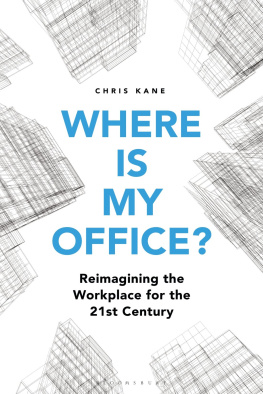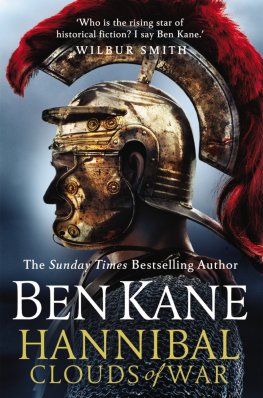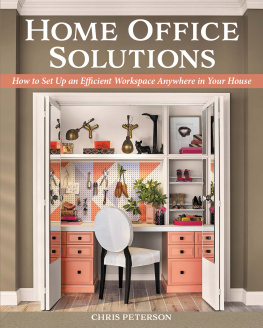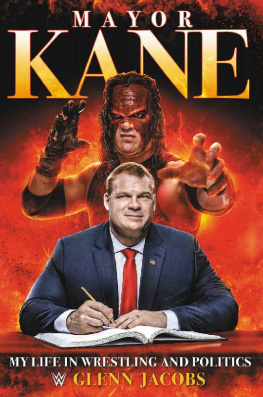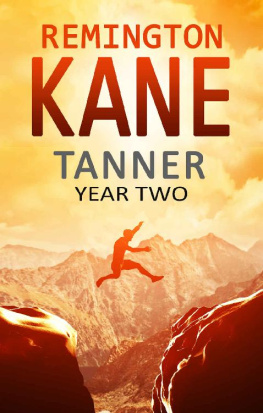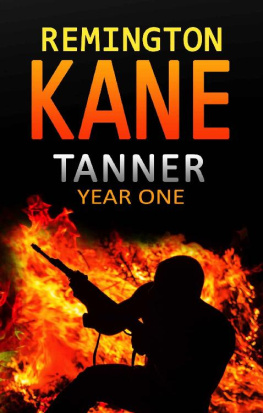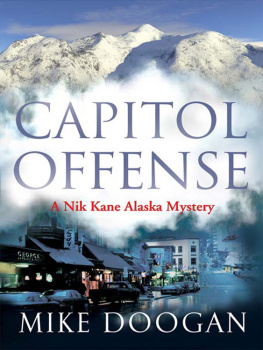Chris Kane - Where is My Office?
Here you can read online Chris Kane - Where is My Office? full text of the book (entire story) in english for free. Download pdf and epub, get meaning, cover and reviews about this ebook. publisher: Bloomsbury Publishing, genre: Politics. Description of the work, (preface) as well as reviews are available. Best literature library LitArk.com created for fans of good reading and offers a wide selection of genres:
Romance novel
Science fiction
Adventure
Detective
Science
History
Home and family
Prose
Art
Politics
Computer
Non-fiction
Religion
Business
Children
Humor
Choose a favorite category and find really read worthwhile books. Enjoy immersion in the world of imagination, feel the emotions of the characters or learn something new for yourself, make an fascinating discovery.
- Book:Where is My Office?
- Author:
- Publisher:Bloomsbury Publishing
- Genre:
- Rating:3 / 5
- Favourites:Add to favourites
- Your mark:
- 60
- 1
- 2
- 3
- 4
- 5
Where is My Office?: summary, description and annotation
We offer to read an annotation, description, summary or preface (depends on what the author of the book "Where is My Office?" wrote himself). If you haven't found the necessary information about the book — write in the comments, we will try to find it.
Where is My Office? — read online for free the complete book (whole text) full work
Below is the text of the book, divided by pages. System saving the place of the last page read, allows you to conveniently read the book "Where is My Office?" online for free, without having to search again every time where you left off. Put a bookmark, and you can go to the page where you finished reading at any time.
Font size:
Interval:
Bookmark:

Chris Kanes prescient account of the changing workplace couldnt be more timely. As we start framing the required redesign of our post-Covid-19 society we must rethink the shared value creation opportunities presented by our most enduring asset, our real estate portfolios. Where is My Office? is insightful, provocative and helpful.
Sen Meehan, Martin Hilti Professor of Marketing & Change Management and the Dean of the MBA program, IMD Business School
With the recent onset of remote working and prevalence of flexible outsourced workspaces, the traditional office has never been so obsolete. Chris Kane provides fascinating insights into the future of corporate real estate with this timely and engaging book.
Mark Dixon, CEO & founder, IWG
This book is a rare offering a perspective on the future of real estate from a seasoned client-side professional. In a sector where most of the narrative emanates from the consultancy and supply side, Chris applies his wealth of knowledge and experience from several decades operating within large organizations to an optimistic and crisply argued case for a better future.
Neil Usher, author of The Elemental Workplace and Elemental Change
Chris Kane has written an incredibly timely book for leaders thinking through the value and role of the physical and virtual office in a post-Covid-19 new normal world. The Smart Value Formula presents a playbook for executives who have an organizational imperative to optimally engage their employees.
Will Saunders, Founder & CEO, AllyAlign Health
Chris Kanes radical rethinking of the workspaces that are so central to our corporate lives today is urgent and visionary. He expertly addresses the major challenges commercial real estate faces and offers not only thoughtful, persuasive ideas for engaging and adapting the workforce, but also a comprehensive roadmap for getting it done.
Fiona Calnan, CEO, Santovia
Particularly relevant post-Covid-19, Where is My Office? is a compelling call for change in the property industry. Supported by insights from experience and bursting with practical solutions, Chris Kane shows how property can be about providing great workplaces and enabling better business outcomes for the customer.
Steven Boyd MBE, CEO, Government Property Agency
Where is My Office? does a great job of making the confusing world of commercial real estate understandable and, more importantly, it lays out the key transformations that are happening and should happen. The book provides an approach that can help business executives turn their spaces into strategic investments that help organizations become more agile and dynamic while nurturing stronger connections both within the company and with local communities.
Corey Thomas, CEO, Rapid7
The idea of the office is at an inflection point today more than ever. While the evolving nature of work, and in turn the role of the office, has been a key topic for industry insiders, it is now something that every business leader is asking themselves. This book touches upon these issues and provides a depth of insight that only someone with Chriss experience and innovative spirit could capture.
Steven Quick, Chief Executive, Cushman & Wakefield
This timely book from Chris Kane demonstrates much of his deep and insightful expertise. By looking at the dilemmas created by the new ways of working, he offers practical reconciliations exploring the balance between digital and analogue solutions while also considering the dynamics of individual creativity and teamwork. And there are even answers to the behavioural question of how to create an organizational culture, making this a sustainable process rather than another fashionable quick fix. A must read!
Fons Trompenaars, organizational theorist, management consultant and author
Chris has a fascinating insight so clearly driven by first-hand experience at the highest level. He has captured the fundamentals of how important the workplace is to businesses and individuals and has done so in a real, personal and engaging way, giving a critical guide to the purpose of the office.
Charlie Green, Co-CEO, The Office Group
Entrepreneur, intrapreneur or provocateur, Chris Kane has been an agent for change in the workplace. His journey through Walt Disney and the BBC charts a prescient trajectory for our post-Covid-19 future.
Jack Pringle, Principal, Regional Director, EMEA
To my darling wife Lol (aka Loreto), who has lovingly supported me throughout my journey of writing this book

Contents
by Mark Thompson
The other day I unfolded my trusty Brompton and cycled fifty blocks through a deserted Manhattan to my office. Once I finished what Id come to do, I got back on the bike and breaking every health and safety regulation in the book took a ride through the interior of the building. Everything was exactly as I remembered it: the work stations, the photos of loved ones, the potted plants. On one desk, five bottles of hot sauce in a row. On another, a cardigan still lying where it had been thrown, one sleeve hanging limply over the side.
The only thing missing was the people.
As I write in May 2020, the office where I used to work is more or less empty. Instead of the five thousand daily security card swipes we normally see at the New York Times building, currently there are fewer than forty. The only people venturing in nowadays are security guards and a handful of other essential workers.
We dont expect to even begin re-populating our skyscraper for months yet. Indeed many of us managers as well as employees doubt whether we will ever go back to working as we did before. What goes for us, goes for offices across the developed world.
Covid-19 has given the themes of this excellent book added relevance and urgency. By showing how much we can get done without offices, the virus has forced us to ask ourselves fundamental questions about how we work, and how often and in what settings we need to come together to get that work done. Once, employers and employees alike accepted the inevitability of office-working despite the costs and inconvenience involved. Now we all know that we have a choice.
The office will only survive if it demonstrably adds value to our endeavours if it promotes creativity, enhances team-work, breaks down barriers between disciplines, nurtures a community with bonds that go deeper than the effective execution of each individuals allotted responsibilities. This agenda the re-imagining of the traditional office work-space has been Chris Kanes preoccupation for more than two decades. Hes had not one but a whole series of opportunities to challenge conventional wisdom and put new ideas to the test at scale. Where is My Office? tells the story of those experiments and the many insights that Chris was able to derive from them. We need these insights now more than ever.
My part in the re-thinking of the office began in the 1990s. By then Id spent nearly twenty years at the BBC, an organization that combined astonishing and often anarchic creativity with an office environment redolent of the mid-century British civil service at its worst: drab desks, green and brown decor, flat fluorescent light. Environment and management culture often went hand in hand. It was an inner sanctum and a drinks cabinet for the bosses; open plan and tepid tea for the rest of us.
On the fabled sixth floor of Television Centre, where the most senior executives had their suites, the bathrooms were kept locked, and the one key entrusted to one of the corporations fiercest assistants to ensure that the leaders of the worlds greatest television service would never have to place their posteriors on a toilet seat that had previously been used by an underling.
Font size:
Interval:
Bookmark:
Similar books «Where is My Office?»
Look at similar books to Where is My Office?. We have selected literature similar in name and meaning in the hope of providing readers with more options to find new, interesting, not yet read works.
Discussion, reviews of the book Where is My Office? and just readers' own opinions. Leave your comments, write what you think about the work, its meaning or the main characters. Specify what exactly you liked and what you didn't like, and why you think so.

